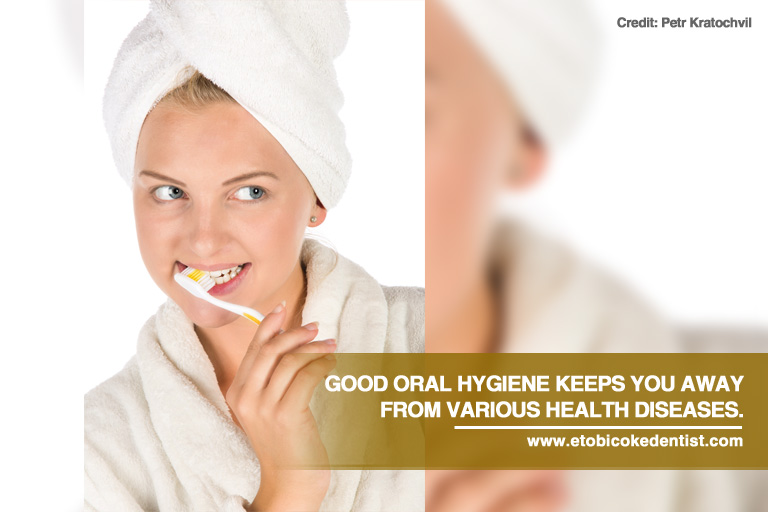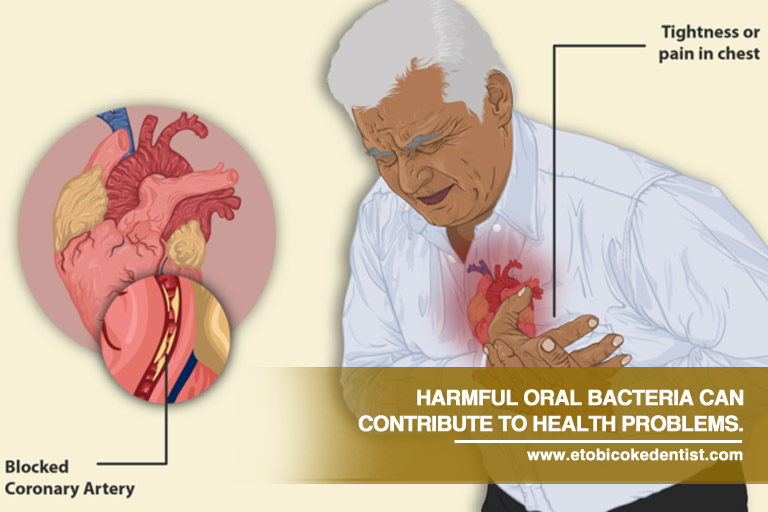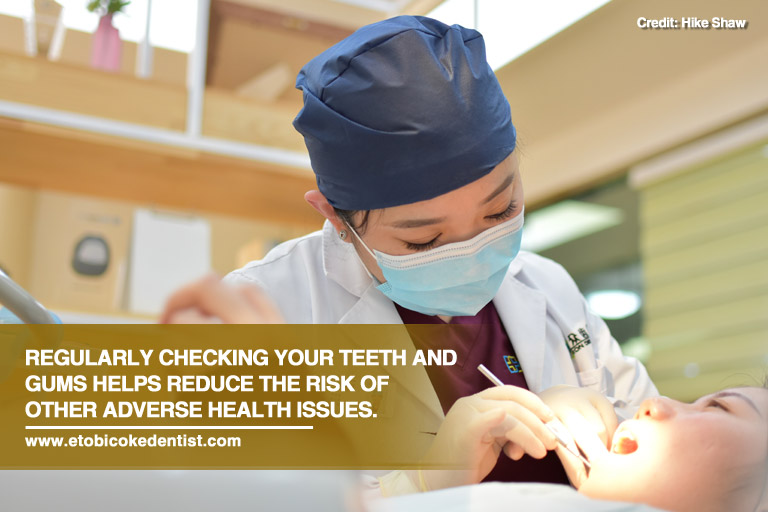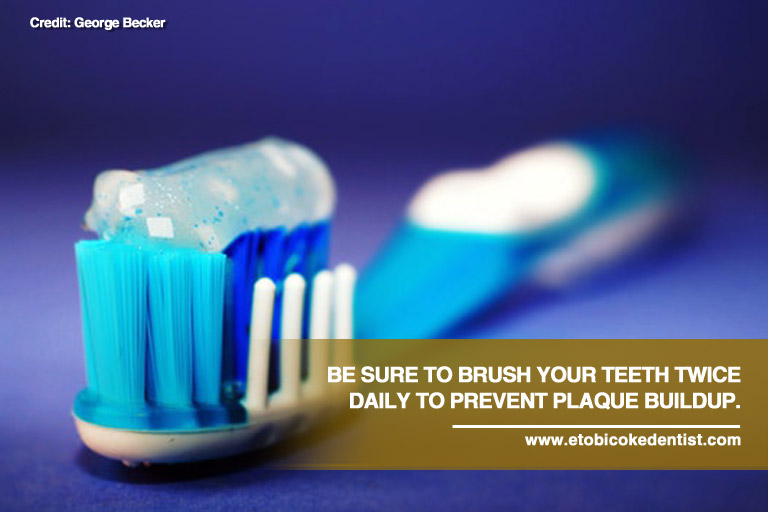Did you know that a healthy mouth and your overall health are integral to each other?
Taking care of your oral health goes a long way in ensuring a healthy, bright smile. Your oral health is more crucial than you could ever realize as it stands as it is the window to the condition of your overall health. This allows you to protect yourself and prevent future health problems.
Connection Between Your Oral Health and General Health

Proper oral hygiene does not simply help optimize your dental health, but it also boosts your overall health. Regular dental care, such as brushing your teeth twice daily, flossing, and professional dental cleaning, can significantly minimize the risk of serious disease and help preserve your memory in the years to come. There numerous scientific evidence supporting their connection.
There are millions of bacteria thriving in your mouth – mostly harmless. However, without proper oral hygiene, harmful bacteria can multiply and enter your digestive and respiratory tracts, causing various diseases.
In addition to our body’s natural defences, good dental health care protects the body from diseases by keeping harmful bacteria under control. When harmful bacteria grow uncontrollably, it could cause oral infections, such as gum disease and tooth decay. Additionally, taking medications, such as pain pills, antidepressants, decongestants, diuretics, and antihistamine, reduces the production of saliva in your mouth. Saliva is a vital part of your oral health protection as it helps wash away tiny food particles and balances acids produced by bacteria. Oral bacteria can cause gum disease, which increases the risk of certain conditions, including diabetes and heart disease.
Conditions Linked to Poor Oral Health

Poor oral health could result in various health diseases and conditions, including:
- Cardiovascular Disease – Several studies reported that oral bacteria cause infection and inflammation leading to heart disease, clogged arteries, and stroke.
- Endocarditis – When oral bacteria enter the bloodstream, they can attach to the inner lining of your heart chambers or valves (endocardium) and cause infection.
- Pregnancy and Birth Complications – Several studies also suggest that periodontitis can cause various premature birth and low birth.
- Pneumonia – Certain oral bacteria, when pulled into your lungs, can cause respiratory diseases, such as pneumonia.
How to Protect Your Oral Health

The burden of oral issues and other health diseases can be significantly reduced through proper dental health care and health interventions, including:
- Regular Brushing and Flossing – Brushing and flossing are the fundamentals of a daily oral hygiene routine. Dental health professionals recommend brushing your teeth twice daily for about two minutes and flossing in between your teeth after meals. Both remove plaque, the leading cause of tooth decay and gum disease. Getting into the habit of brushing and flossing regularly also helps keep your breath stay fresh and clean by killing harmful bacteria. It is also a good practice to replace your old toothbrush every three to four months or as soon as it gets frayed. Worn out toothbrush is inefficient in removing plaque; thus, increasing the risk of tooth decay, gum disease, and bad breath.
- Regular Dental Checkup – Visiting your dentist twice a year does not only help save your smile but also protect your smile. Detecting early signs of tooth decay and gum disease can prevent premature tooth loss. The dentist will also assist you in maintaining good oral health and preventing problems before you even know about them. A study claimed that women getting routine dental care reduces the risk of heart disease by a third. Moreover, the researchers of the Aetna study that regular dental care helps minimize healthcare cost burden. Most importantly, having your mouth checked helps the dentist detect early signs of oral cancer.
- Healthy, Balanced Diet – The foods you eat can affect your general health, as well as the health of your teeth and gums. Proper nutrition is consuming a well-balanced diet, so your body absorbs the nutrients essential for good health and wellness. Consuming sugary foods and drinks could put you at risk of various dental problems such as tooth decay. Your dentist or dietitian recommends eating a nutritious, balanced diet. Be mindful in choosing your meals and snacks.women- Drink eight glasses of water daily.
– Incorporate the five major food groups in your diet: fruits, vegetables, whole grains, protein, and healthy fat.Additionally, a healthy diet also protects your body from diseases, particularly noncommunicable diseases, including diabetes, cardiovascular diseases, obesity, certain types of cancer and skeletal conditions. - Avoid Smoking – Smoking cigarettes and tobacco products can cause gum disease that affects the attachment of the soft tissue and bone to your teeth. Smoking reduces the supply of oxygen to your gums. Smokers have a higher risk of stained teeth, premature tooth loss, and in serious cases, oral cancer. Smoking also has severe effects on your lungs, such as emphysema, pneumonia, chronic obstructive pulmonary disease (COPD), and lung cancer.
- Avoid Alcoholic Beverages – Drinking alcohol moderately can be beneficial to one’s health. Women who drink 15 grams of alcohol a day and men who drink 30 grams a day have a lower risk of cardiovascular diseases due to reduced levels of inflammation markers (interleukin-6 and C-Reactive Protein) in the blood. However, heavy drinking can affect both your oral health and general health. Alcohol can reduce the production of saliva, causing your mouth to become dry. Saliva helps wash away the bacteria and neutralize the acid in your mouth.
How Oral Hygiene Keep You Healthy

Taking good care of your mouth, teeth, and gums also mean taking care of our general health. Brush, floss, rinse with an antiseptic mouthwash, and visit your dentist regularly are your first line of defence.
Here are six ways how proper dental hygiene boosts your body and mind healthy:
-
- Boost Confidence and Self-Esteem – People who are conscious of their oral hygiene have healthy smiles, white teeth, and fresh breath.
- Lower the Risk of Heart Disease – Gum disease and infections have been associated with various types of cardiovascular diseases. Keeping your gums in top shape also means taking care of your heart.
- Preserves Memory – Gingivitis can take a toll on a person’s memory and other cognitive skills. Rinse your mouth thoroughly with an antibacterial mouthwash to kill bacteria that cause gingivitis.
- Reduce the Risk of Inflammation and Infection of the Body – Several studies linked poor oral health to the development of inflammation and infection in different parts of the body. Health experts also suggest that people with gum disease have more risk of developing rheumatoid arthritis, a condition characterized by the inflammation of the joint.
- Keeps Blood Sugar Stable – Gum disease is prevalent in diabetic people. Diabetes can affect the body’s ability to fight off infection; thus, having diabetes can put you at risk of a severe type of gum disease. Protecting your oral health does not only reduce your risk of gingivitis, but it also helps keep your blood sugar stable.
Practicing good dental care is essential in promoting healthy mouth, teeth, and gums, as well as body. Moreover, your dentist can treat and prevent dental problems that could diminish your quality of health and life.
If you are looking for an Etobicoke dentist to look after you and your family’s oral health, turn to Dr. Mark Rhody. We provide our patients with a positive dental experience in our caring and comfortable environment. With our combined years of experience in dentistry, we take pride in our ability to help patients maintain optimum oral and general health through regular dental checkups and preventive care.
Give us a call at (416)231-4281 to book an appointment.

You have noted very interesting points! ps decent site.Blog monry